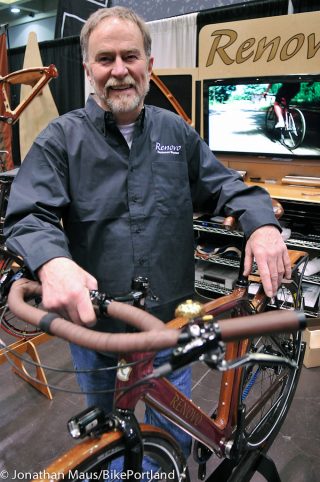
(Photos: Jonathan Maus/BikePortland)
The ride for Renovo Hardwood Bicycles is over.
The website is gone. No one responds to emails. The building at SE 8th and Ash that has housed its factory since 2008 is for lease. And there’s a lien notice posted to the front door.
According to the notice, Kenneth Wheeler of Renovo Designs LLC owes $34,864.53 in rent that hasn’t been paid since May.
This is a sad ending to a company that was once one of the bike industry’s shining stars.
Wheeler launched Renovo at the 2008 North American Handmade Bicycle Show (NAHBS) in Portland. With experience and success making hardwood lighting fixtures and airplanes, Wheeler figured out how to make bicycle frames with a CNC machine. When I first visited his shop in February 2008 he proudly watched his CNC machine at work and said it would be done with the frame in five minutes. Not only were the frames beautiful and relatively easy to produce (or so it seemed), Wheeler said they tested stronger than high-grade aluminum.
He was clearly on to something.
After NAHBS, Renovo’s brand grew quickly. Three years later Wheeler had inked a partnership with German carmaker Audi; opened a showroom in the tony city of Sausalito, California; and graced headlines all over the world.
Not surprisingly, orders rolled in.
“When I got there we had about 85-90 bikes in the queue and zero cash. We had a lot of unhappy customers, then restricted cash flow. That stuff tends to snowball.”
— Tyler Robertson, former employee
Sales peaked in 2012. Unfortunately that’s also when things began to go awry due to a combination of production issues and the challenge of meeting customer demands.
Tyler Robertson, a former employee in charge of marketing who worked for the company in the summer of 2014, recalled in an interview today that they faced, “massive delays in production.” While the CNC construction method sounds quick and easy (Wheeler told me back in 2008 that his CNC process, “Lends itself to high volume production”), the truth was much more complicated. “It was a really hands-on, meticulous process,” Robertson said. Adding to the problem were customers frustrated by longer than expected delays. Robertson says they were promised a bike in six-to-eight weeks; but some people on the list had been waiting as much as two years. As word spread of the delay (there are several very negative Yelp reviews during this period), many customers cancelled their orders.
Renovo was counting on those orders to meet payroll and other expenses. As orders dried up, so did their main source of revenue.
Advertisement
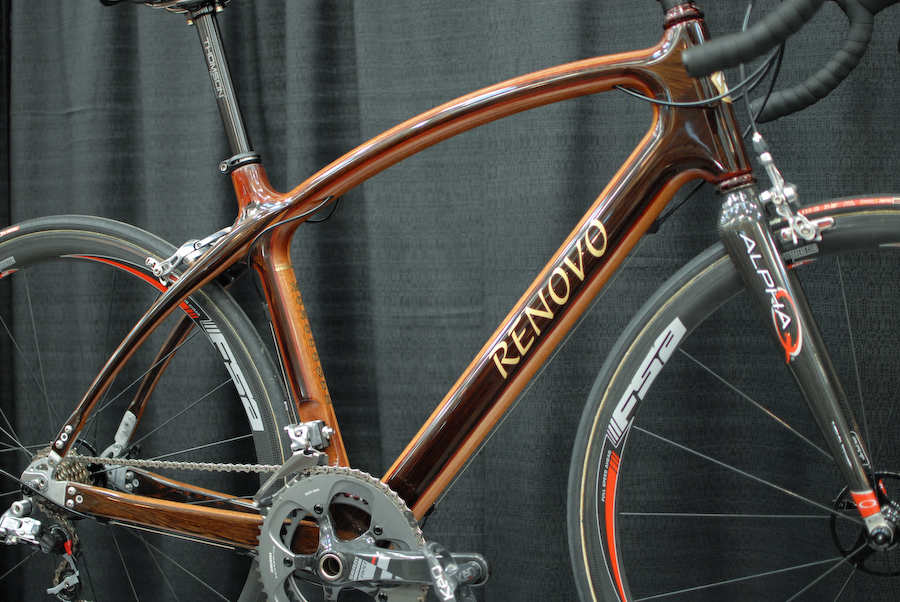
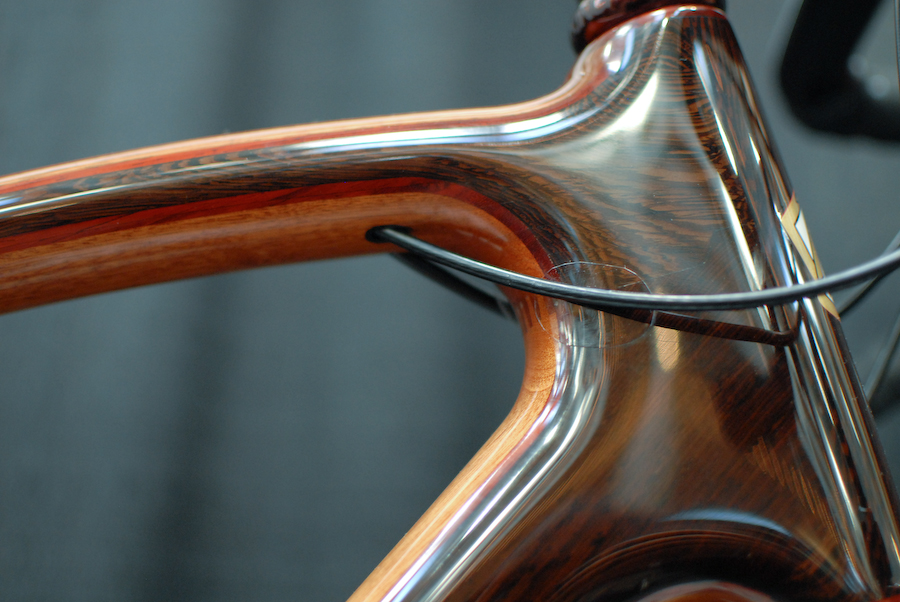
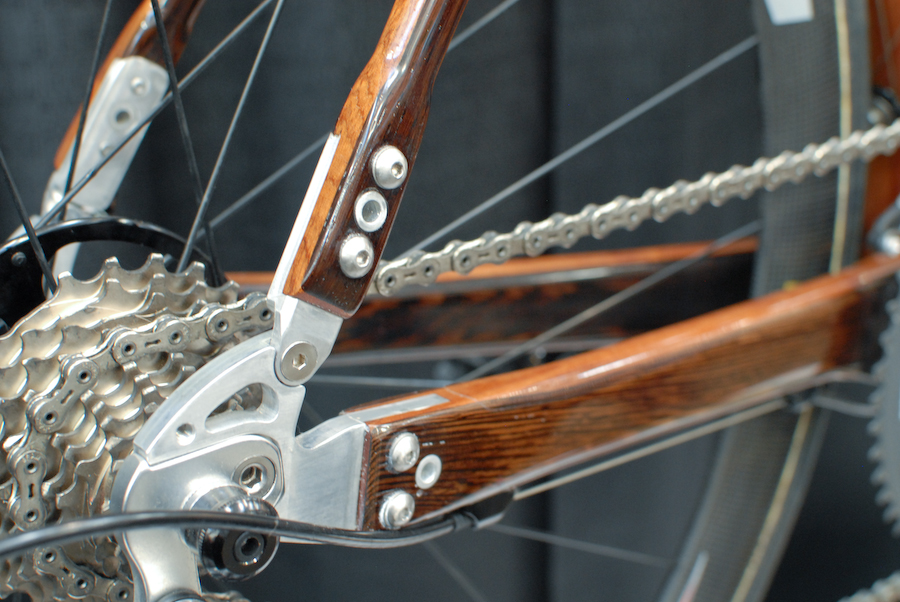

“When I got there we had about 85-90 bikes in the queue and zero cash,” remembers Robertson. “We had a lot of unhappy customers, then restricted cash flow. That stuff tends to snowball.”
“It’s a complicated mess.”
— Ken Wheeler, company founder
The backlog wasn’t just because of demand. Production problems started to bubble up as early as 2012, according to former employee I spoke with today who asked to remain anonymous. The allure of Renovo’s production model was that you could just put the wood in the CNC machine, hit a few buttons, and a bike frame would pop out. But wood is a “tricky material,” the former employee shared with me today. “The problem with CNC’ing wood is that, especially with the multi-laminate, it’s tremendously difficult to machine wood in a consistent fashion with the tolerances needed for a bicycle.”
Each frame was made-to-order both in terms of size and wood selection. Add the fact that they were built as two separate halves that had to be accurately joined together and you have a very complicated process.
None of the production difficulties were insurmountable, but each step meant more hands-on work to ensure quality, which in turn led to more delays.
Reached on the phone today, Wheeler said offering custom bikes was, “A stupid idea.” He said it was complicated to keep track of 20-40 custom bikes on the production floor at any one time. Managing customers’ needs was also difficult. “Our record was 128 emails from one single customer about his bike.” He told another story of a customer’s wife who threatened to sue Renovo for fraud after they took so long to deliver a bike.
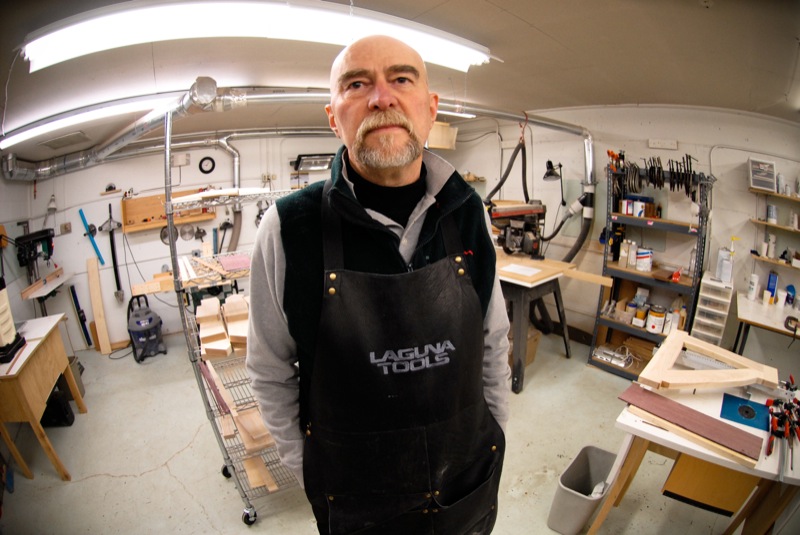
Hoping to stem the tide and scale-up production, Wheeler decided to stop selling custom frames in 2014. In a company press release, Wheeler joked about the backlog: “Struggling to control this unruly beast has kept Advil profitable.”
Unfortunately that shift didn’t fix the Renovo’s production problems.
As each new “ready to ride” model was released, the company would publicize six different sizes on its website. “Of those six,” the employee told me today, “Only 2-3 of the sizes were fully programmed into the CNC machine. There would be errors in terms of programming.” If the CNC work wasn’t perfect, the two halves of the frames would not line up perfectly, increasing the chance for misalignment and adding even more production time to get it right.
“Things came to a head when production staff felt like their safety concerns weren’t being heard.”
— a former employee
By 2015 the company had reached a breaking point. Wheeler shared with me today that he was under so much stress he had a heart attack. He feels he did everything he could to increase production and boost sales. They hired an outside PR firm, added staff, and continued to get rave reviews for the bikes in major magazines. Despite those efforts however, Wheeler said sales never returned to their 2012 level.
“If you don’t have the sales,” he said. “Nothing else matters.”
In 2016, Wheeler met Al Spinks, a Renovo customer who also happened to be a wealthy, fifth-generation farmer from Texas who loved to ride bikes. Spinks offered to invest in Renovo to help them get over the hump. Wheeler eagerly accepted. He used the money to increase production, do more marketing, research and development, launch new models, and hire an engineer who previously worked at Shimano. (Bicycle Retailer & Industry News magazine wrote about Spinks’ investment in March 2018.)
But according to a former employee, the large infusion of cash led to a new problem: Pressure to meet production quotas that led to a difficult working environment.
After his heart attack in 2016, Wheeler took his first real vacation over Christmas in 2017 and realized he didn’t want to return to the stress Renovo caused him. His partner Al Spinks was interested in taking over the company, but some of his other investments hadn’t been going well. Ultimately, “Money stopped coming from him,” Wheeler said.
By this past spring, a former employee told me, “Things came to a head when production staff felt like their safety concerns [both in terms of their personal safety and their ability to ensure a safe product] weren’t being heard.” In March of this year seven members of the production staff walked out. “After that,” the employee shared, “the place was on life support.”
Tensions between remaining employees and ownership continued into April when all three of the engineering staff left the company. From a staff that once numbered 12 employees, just three were left to make one final sales push at the big Sea Otter Classic event in April. “We went to Sea Otter and nothing came of it,” Wheeler said on the phone today. “And that was the end.” By May all remaining employees were gone. Wheeler continued to negotiate an exit with Spinks. Then on July 2nd, Spinks, just 53 years old, had a surprise heart attack and died.
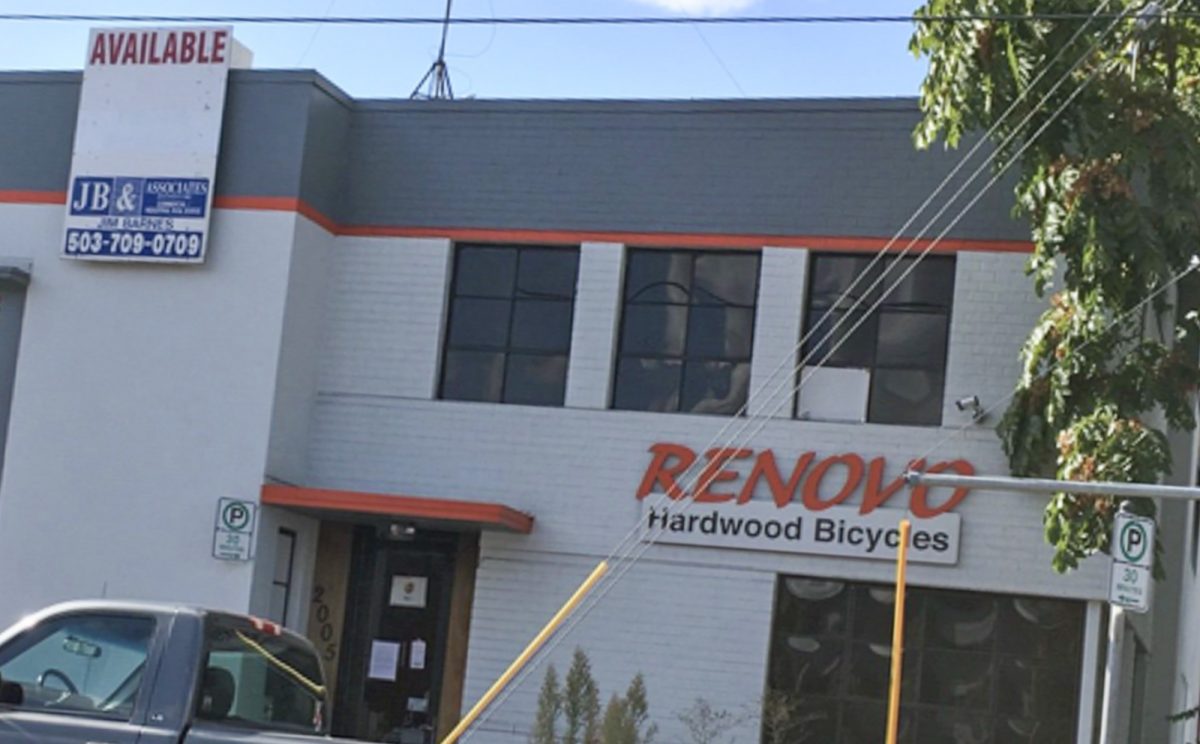
(Photo: Paul Souders)
Thinking back on the last 11 years, Wheeler said today that he feels he did everything he possibly could to make Renovo a success. What I’ve shared in this story is only part of the drama and difficulty this company faced. There was the broken CNC machine and the parts needed to fix it that seemed to never arrive, the difficulty in hiring machinists, the disagreements between Wheeler and his employees, a stubborn sales decline, and so on. “It’s a complicated mess,” is how Wheeler described it today.
“My only consolation is that I — we — did the very best we could do to make it work. I didn’t want to let our customers down; but I couldn’t solve it. It just didn’t work… That’s not totally unusual in the world of business.” Especially in today’s bike business. Just one year ago, Renovo was a subject in an Oregon Business story that chronicled the tough climate for bike builders in Oregon.
What about bikes themselves? Everyone I talked to for this story had nothing but great things to say about them. Wheeler seemed to take solace in the fact that — through all the ups-and-downs — everyone loved the bikes. Even the guy whose wife threatened a lawsuit. “We ultimately shipped him the bike and he posted pictures of it on our Facebook page!” Wheeler beamed.
UPDATE, 11:03 am on 10/5: Several former employees have shared scathing allegations of misconduct from Ken Wheeler on company review site Glassdoor.
— Jonathan Maus: (503) 706-8804, @jonathan_maus on Twitter and jonathan@bikeportland.org
Never miss a story. Sign-up for the daily BP Headlines email.
BikePortland needs your support.

